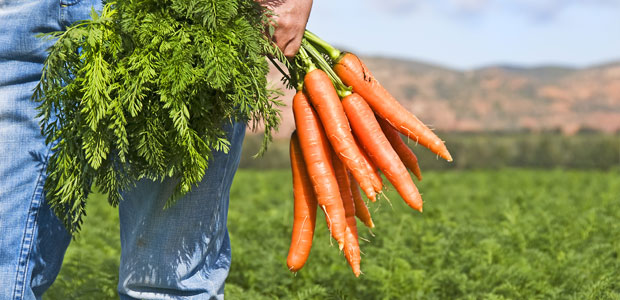Advertisement
Richmond, BC, Bans the Growth of GM Crops
At alive we’ve been raising concerns about genetically modified (GM) crops for more than a decade. Despite the fact that Health Canada has deemed GM crops safe, researchers, lobbyists, and farmers have been raising the alarm about their dangers for years. Richmond, BC, is one of a growing handful of municipalities that has decided to … Continued

At alive we’ve been raising concerns about genetically modified (GM) crops for more than a decade. Despite the fact that Health Canada has deemed GM crops safe, researchers, lobbyists, and farmers have been raising the alarm about their dangers for years. Richmond, BC, is one of a growing handful of municipalities that has decided to ban the growth of GM crops on its soil.
The only downside to this ban is that the City of Richmond has no power to enforce it as GM crops are regulated by the federal government. But the ban itself does send a strong message that GM seed and crops aren’t welcome in Richmond.
What are GM crops?
Genetically modified crops are created when scientists take genes from one species and transfer them into the DNA of another species. Four major crops have been genetically modified:
- soy
- corn
- canola
- cotton
What health risks do GM crops pose?
Despite Health Canada’s assurances that GM crops pose no health dangers, research studies have shown that GM crops have caused
- skin, respiratory, and intestinal reactions in Filipino villagers living adjacent to GM cornfields
- allergic reactions in agricultural workers in India
- the death of sheep that grazed on GM cotton plants in India
- the death of cows that were fed GM corn in Germany
Passionate opposition
Anti-GM crop supporters filled Richmond City Hall where they passionately appealed to city council to ban GM crops. Richmond City Councillor Harold Steves, who’s also a farmer, is quoted by the Richmond News as saying, “It’s quite simple; if we grow GE crops next to organic crops, there will be cross-contamination and we will be consuming GE crops whether we know it or not.”
What foods contain GM crops?
There’s no requirement to label foods that contain GM crops in North America, making it impossible to know which foods contain them. However, these foods may contain GM crops:
- bread, candy, cereals, chips, chocolate, cookies, crackers, fried foods, frozen yogurt and ice cream, hamburgers, and hot dogs
- infant formula, margarine, mayonnaise, meat substitutes, and veggie burgers
- pasta, protein powder, salad dressing, soy cheese, soy sauce, tofu, and tomato sauce
How to avoid GM foods
There are steps we can take to limit our consumption of GM crops.
- Buy organic foods. (They’re not allowed to contain GM crops.)
- Buy foods that sport non-GMO labels.
- Avoid products containing soy, corn, cottonseed oils, and canola.
- Consult a non-GMO shopping guide such as the Non-GMO Shopping Guide.





